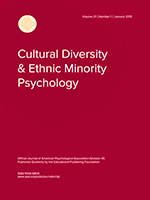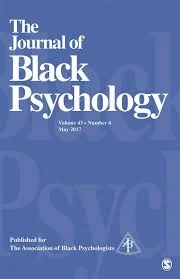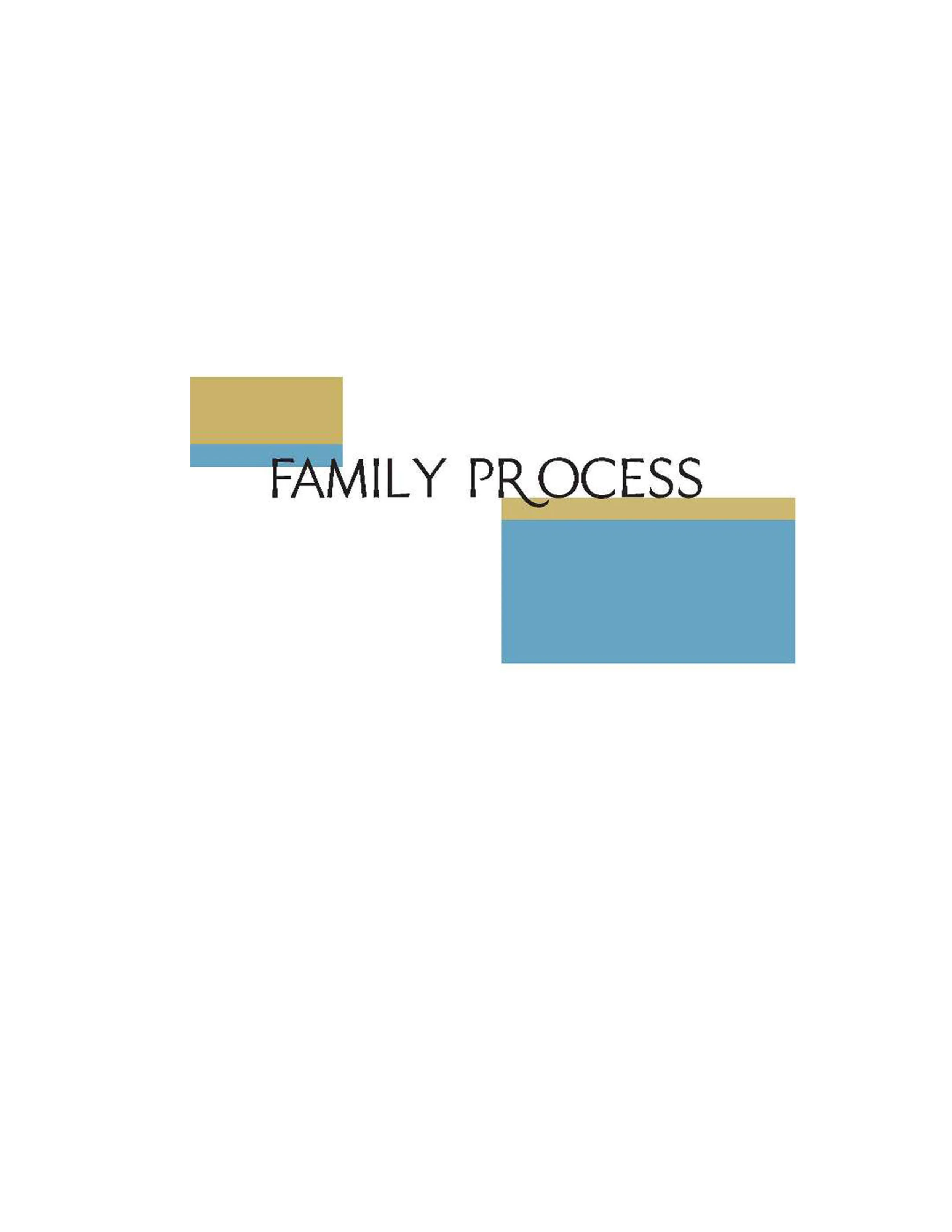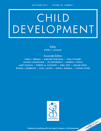RE Anderson, HC Stevenson
American Psychologist 74 (1), 63
For youth and adults of color, prolonged exposure to racial discrimination may result in debilitating psychological, behavioral, and health outcomes. Research has suggested that race-based traumatic stress can manifest from direct and vicarious discriminatory racial encounters (DREs) that impact individuals during and after an event. To help their children prepare for and prevent the deleterious consequences of DREs, many parents of color utilize racial socialization (RS), or communication about racialized experiences. Although RS research has illuminated associations between RS and youth well-being indicators (ie, psychosocial, physiological, academic, and identity-related), findings have mainly focused on RS frequency and endorsement in retrospective accounts and not on how RS is transmitted and received, used during in-the-moment encounters, or applied to reduce racial stress and trauma through …
IW Metzger, T Salami, S Carter, C Halliday-Boykins, RE Anderson, ...
Cultural Diversity and Ethnic Minority Psychology 24 (4), 489
Objectives:
Despite the abundance of research aimed at quantifying the impact of racism on the mental and physical health of African Americans, results remain inconclusive largely because of challenges with operationalization, as well as conflation with the concept of racial discrimination, which may be more readily assessed. The purpose of the current study was to:(a) determine whether racial discrimination had an impact on the degree of alcohol use and binge drinking among African American emerging adults, and if so,(b) determine whether perceived stress linked to racially discriminatory experiences moderated these associations.
RE Anderson, S Jones, N Anyiwo, M McKenny, N Gaylord‐Harden
Journal of Research on Adolescence
While youth generally experience stressors from developmental milestones, Black youth also face racialized stressors. Racial socialization has been found to help Black youth cope with racialized stressors, but research has yet to show its contribution to coping beyond general socialization practices. This study examines how racial socialization contributes beyond that of general coping socialization to coping behaviors. Fifty‐eight third–eighth‐grade (Mage = 11.3, SD = 1.54) youth reported general coping socialization and racial socialization practices and coping behaviors. Results indicate that for engagement coping, racial socialization messages contributed significantly to parent‐provided engaged socialization strategies. Implications are considered for the ways in which Black youth experience stress and require culturally specific practices for successful coping with frequently encountered stressors.
RE Anderson, SCT Jones, CC Navarro, MC McKenny, TJ Mehta, ...
International journal of environmental research and public health 15 (5)
Black American youth are vulnerable to the consequences of repeated exposure to racial discrimination, particularly through hampered coping abilities and greater internalizing and externalizing problems. One way in which Black American parents have protected their children from these deleterious consequences is through racial socialization, or communication regarding aspects of racialized experiences and contexts. Less is known, however, about the potential therapeutic benefits of racial socialization via clinical intervention. The five-week Engaging, Managing, and Bonding through Race (EMBRace) racial socialization intervention was developed to enhance coping strategies for parents and adolescents and reduce adolescent internalizing and externalizing problems. The purpose of this study is to describe a case study of one family through a mixed methods approach. Variables of interest included racial …
RE Anderson, M McKenny, A Mitchell, L Koku, HC Stevenson
Journal of Black Psychology 44 (1), 25-46
The goal of this article is to report initial feasibility and coping response data from a pilot study of a new five-session intervention (Engaging, Managing, and Bonding through Race [EMBRace]) for Black families utilizing racial socialization to address stress and trauma from racial encounters. Ten caregiver and youth dyads were enrolled and completed the EMBRace intervention. Feasibility was based on a closed-option survey for therapists as well as open-ended participant responses to program satisfaction post-intervention. Responses to stress management were assessed via repeated measures of self-reported coping strategies throughout the sessions. EMBRace was deemed to be acceptable by the majority of therapists and participants with regard to discussing racial encounters. Participant responses were categorized into five primary codes, including advice, clinician approach, program changes, likes, and …
RE Anderson, MC McKenny, HC Stevenson
Family Process
MA Smith‐Bynum, RE Anderson, BAL Davis, MG Franco, D English
Child development 87 (6), 1926-1939
This study examined patterns of (a) observed racial socialization messages in dyadic discussions between 111 African American mothers and adolescents (Mage = 15.50) and (b) mothers’ positive emotions displayed during the discussion. Mothers displayed more advocacy on behalf of their adolescents in response to discrimination by a White teacher than to discrimination by a White salesperson. Mothers displayed consistent emotional support of adolescents’ problem solving across both dilemmas but lower warmth in response to the salesperson dilemma. Findings illustrate evidence of the transactional nature of racial socialization when presented with adolescents’ racial dilemmas. The role of adolescent gender in mothers’ observed racial socialization responses is also discussed. A framework for a process‐oriented approach to racial socialization is presented.
RE Anderson
Journal of Family Psychology 32 (1), 60
The Family Stress Model acknowledges forms of resilience in the face of hardship; however, few studies have emerged on the potentially positive role of familial relationships in the academic, psychological, and prosocial success of impoverished Black children. The current study evaluates how parent–child relationship conflict and financial stress are associated with children’s school readiness (ie, academic, psychosocial, and socioemotional indicators). Latent profile analyses, incorporating financial stress, general stress, and parent–child relationship variables were used to test whether varying family stress profiles differentially predicted children’s school readiness in Black families with children entering kindergarten (N= 292). Findings revealed 4 latent classifications with profiles of low, moderate, moderate/high, and high/moderate stress and conflict variables, respectively. Whereas the low-profile was associated …
RE Anderson
Encyclopedia of Family Studies, 1-9
The changing historical and cultural landscape of families in the United States has largely impacted and been impacted by shifts in neighborhoods and communities. World War II brought about significant change for family life, neighborhood mobility, and community functioning. As a result, economic and subsequently psychosocial disparities became evident within families, particularly as a result of continuous socioeconomic disadvantage, concentrated poverty, and generational transmission. Communities, neighborhoods, and families continue to change over time; thus, the interrelation of these factors will bring new meaning to each independently as US society encounters changing demographics, neighborhood preference, and family compositions.
JS Mattis, NG Simpson, W Powell, RE Anderson, LR Kimbro, JH Mattis
Positive psychology in racial and ethnic groups: Theory, research, and practice
The extant literature on the positive psychological development of African Americans is sparse, and the literature that does exist is generally ahistorical and acontextual. In our overview of scholarship on positive outcomes among African Americans, we take an interdisciplinary approach combining perspectives from cultural studies, gender studies, sociology, anthropology, and political science. We seek to account for how culture and socio political context may change the way that we understand virtues and strengths. We conclude by noting the need for a positive psychology that imagines positive constructs not exclusively as elements of personal character but as cultural, historical, and sociopolitical constructs that are deployed in complex ways by African Americans. http://dx. doi. org/10.1037/14799 005









